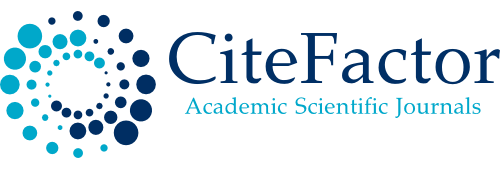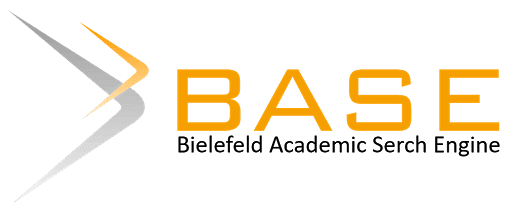ISSN: 2685-8193 (online)
PUBLICATION ETHICS
To maintain the quality of the manuscript and avoid publishing violations/plagiarism in the publishing process, the editorial board determines the ethics of scientific publications of the Tropical Plant Protection Journal. These rules of publication ethics apply to writers/authors, editors, reviewers/reviewers, and journal/editorial managers. The ethics of the publication refers to The Committee on Publication Ethics (COPE).
Writer's Ethics
- Reporting; The author must provide information about the process and results of his research to the editor honestly, clearly, and thoroughly, and keep his research data properly and safely.
- Originality and plagiarism; the author must ensure that the manuscript that has been sent/submitted to the editor is the original manuscript, written by himself, sourced from his own ideas and ideas, and not plagiarizing the written work or ideas/ideas of others. Authors are strictly prohibited from changing the names of the cited reference sources to other people's names.
- Repeat delivery; the author must inform that the manuscript sent/submitted to the editor is a manuscript that has never been submitted/submitted to another journal/publication publisher. If there is a "redundancy" in sending the manuscript to another publisher, the editor will reject the manuscript sent by the author.
- Author status; the author must inform the editor that the author has competence or qualifications in a particular field of expertise in accordance with the published field of science, namely librarianship. The author who sends the manuscript to the editor is the first author (co-author) so that if a problem is found in the process of publishing the manuscript, it can be resolved immediately.
- Error writing script; the author must immediately inform the editor if errors are found in the writing of the manuscript, both the results of the review and the edits. The writing errors include writing names, affiliations/agencies, quotes, and other writings that can reduce the meaning and substance of the manuscript. If that happens, the author must immediately propose improvements to the manuscript.
- Disclosure of conflicts of interest; the author must understand the ethics of scientific publications above to avoid conflicts of interest with other parties, so that the manuscript can be processed smoothly and safely.
Editor's Ethics
Publication decisions; editors must ensure that the manuscript review process is thorough, transparent, objective, fair and discreet. This becomes the basis for the editor in making decisions on a manuscript, whether it is rejected or accepted. In this case, the editorial board acts as the manuscript selection team.
- Publication information; editors must ensure that manuscript writing guidelines for authors and other interested parties can be accessed and read clearly, both in printed and electronic versions.
- Sharing of peer-reviewed manuscripts; the editor must ensure reviewers and manuscript materials for review, as well as clearly inform the reviewers of the terms and process of reviewing manuscripts.
- Objectivity and neutrality; editors must be objective, neutral, and honest in editing manuscripts, regardless of gender, business side, ethnicity, religion, race, inter-group, and nationality of the author.
- Confidentiality; editors must safeguard any information properly, especially with regard to the author's privacy and distribution of the manuscript.
- Disclosure of conflicts of interest; editors must understand the ethics of scientific publications above to avoid conflicts of interest with other parties, so that the process of publishing manuscripts runs smoothly and safely.
Reviewer Ethics
- Objectivity and neutrality; reviewers must be honest, objective, unbiased, independent, and only side with scientific truth. The process of reviewing the manuscript is carried out professionally without distinction of gender, business side, ethnicity, religion, race, inter-group, and nationality of the author.
- Clarity of reference sources; the reviewer must ensure that the source of the reference/text citation is appropriate and credible (accountable). If errors or irregularities are found in the writing of the reference/quotation source, the reviewer must immediately inform the editor for corrections by the author according to the notes from the reviewer.
- The effectiveness of peer-review; the reviewer must respond to the manuscript that has been sent by the editor and work according to the specified peer-review time (maximum 2 weeks). If additional time is needed in reviewing the manuscript, it must immediately report (confirm) to the editorial secretariat.
- Disclosure of conflicts of interest; reviewers must understand the ethics of scientific publications above to avoid conflicts of interest with other parties, so that the process of publishing the manuscript runs smoothly and safely.
Etika Penulis
Untuk menjaga kualitas naskah dan menghindari pelanggaran penerbitan/plagiarisme dalam proses penerbitan, dewan redaksi menetapkan etika publikasi ilmiah Jurnal Proteksi Tanaman Tropika. Aturan etika publikasi ini berlaku bagi penulis/pengarang, editor, mitra bestari/reviewer, dan pengelola jurnal/redaksi. Etika publikasi tersebut mengacu pada The Committee on Publication Ethics (COPE).
Etika Penulis
- Pelaporan; penulis harus memberikan informasi tentang proses dan hasil penelitiannya kepada redaksi secara jujur, jelas, dan menyeluruh, serta tetap menyimpan data penelitiannya dengan baik dan aman.
- Orisinalitas dan plagiarisme; penulis harus memastikan bahwa naskah yang telah dikirim/diserahkan ke redaksi adalah naskah asli, ditulis oleh dirinya sendiri, bersumber dari ide dan gagasan sendiri, dan bukan menjiplak karya tulis atau ide/gagasan orang lain. Penulis dilarang keras untuk mengalih-nama-kan sumber referensi yang dikutip ke nama orang lain.
- Pengulangan pengiriman; penulis harus menginformasikan bahwa naskah yang dikirim/diserahkan ke redaksi adalah naskah yang belum pernah dikirimkan/diserahkan ke penerbit jurnal/publikasi lain. Apabila ditemukan adanya “redudansi” pengiriman naskah ke penerbit lain, maka redaksi akan menolak naskah yang dikirimkan penulis.
- Status penulis; penulis harus menginformasikan ke redaksi bahwa penulis memiliki kompetensi atau kualifikasi dalam bidang kepakaran tertentu yang sesuai dengan bidang ilmu terbitan, yaitu kepustakawanan. Penulis yang mengirimkan naskah ke redaksi adalah penulis pertama (co-author)sehingga jika ditemukan masalah dalam proses penerbitan naskah dapat segera dituntaskan.
- Kesalahan penulisan naskah; penulis harus segera menginformasikan ke redaksi apabila ditemukan kesalahan dalam penulisan naskah, baik hasil review maupun hasil edit. Kesalahan penulisan tersebut mencakup penulisan nama, afiliasi/instansi, kutipan, serta tulisan lain yang dapat mengurangi makna dan susbtansi naskah. Jika hal itu terjadi, penulis harus segera mengusulkan perbaikan naskah.
- Pengungkapan konflik kepentingan; penulis harus memahami etika publikasi ilmiah di atas untuk menghindari adanya konflik kepentingan dengan pihak lain, sehingga naskah dapat diproses secara lancar dan aman.
Etika Editor
Keputusan publikasi; editor harus memastikan proses penelaahan naskah secara menyeluruh, transparan, objektif, adil, dan bijaksana. Hal tersebut menjadi dasar editor dalam mengambil keputusan terhadap suatu naskah, ditolak atau diterima. Dalam hal ini, dewan editor berperan sebagai tim seleksi naskah.
- Informasi publikasi; editor harus memastikan bahwa panduan penulisan naskah bagi penulis dan pihak lain yang berkepentingan dapat diakses dan dibaca secara jelas, baik versi cetak maupun elektronik.
- Pembagian naskah peer-review; editor harus memastikan reviewer dan bahan naskah untuk review, serta menginformasikan ketentuan dan proses review naskah secara jelas ke reviewer.
- Objektivitas dan netralitas; editor harus objektif, netral, dan jujur dalam mengedit naskah, tanpa membedakan jenis kelamin, sisi bisnis, suku, agama, ras, antar-golongan, dan kewarganegaraan penulis.
- Kerahasiaan; editor harus menjaga setiap informasi dengan baik, khususnya yang terkait dengan privasi penulis dan distribusi naskahnya.
- Pengungkapan konflik kepentingan; editor harus memahami etika publikasi ilmiah di atas untuk menghindari adanya konflik kepentingan dengan pihak lain, sehingga proses penerbitan naskah berjalan lancar dan aman.
Etika Reviewer
- Objektivitas dan netralitas; reviewer harus jujur, objektif, tidak bias, independen, dan hanya berpihak pada kebenaran ilmiah. Proses penelaahan naskah dilakukan secara profesional tanpa membedakan jenis kelamin, sisi bisnis, suku, agama, ras, antar-golongan, dan kewarganegaraan penulis.
- Kejelasan sumber referensi; reviewer harus memastikan bahwa sumber referensi/kutipan naskah telah sesuai dan kredibel (dapat dipertanggungjawabkan). Jika ditemukan kesalahan atau penyimpangan dalam penulisan sumber referensi/kutipan, reviewer harus segera menginformasikan ke redaksi untuk dilakukan perbaikan oleh penulis sesuai catatan dari reviewer.
- Efektivitas peer-review; reviewer harus merespon naskah yang telah dikirim oleh redaksi dan bekerja sesuai dengan waktu penelaahan naskah (peer-review) yang telah ditetapkan (maksimal 2 minggu). Apabila membutuhkan waktu tambahan dalam review naskah harus segera melaporkan (konfirmasi) ke sekretariat redaksi.
- Pengungkapan konflik kepentingan; reviewer harus memahami etika publikasi ilmiah di atas untuk menghindari adanya konflik kepentingan dengan pihak lain, sehingga proses penerbitan naskah berjalan lancar dan aman.





